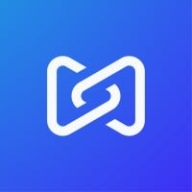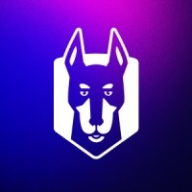

Klocwork and Snyk both operate within the realm of software analysis and security tools. While each has its strengths, Snyk appears to have an edge due to its ease of integration and real-time notifications, particularly valuable in dynamic development environments.
Features: Klocwork provides powerful static code analysis capabilities, including on-the-fly analysis and integration with development environments, supported by custom checkers and industry standards. Snyk offers simplicity and ease of integration, along with a comprehensive vulnerability database, real-time notifications, and strong CI/CD integration.
Room for Improvement: Klocwork could expand its language support and improve handling of global variables to lower false positives. Enhancements to its dashboard and modern language integration would also be beneficial. Snyk could improve by broadening language support, refining plugins, and enhancing reporting mechanisms. Better real-time integration and more options for vulnerability filtering could reduce notification clutter.
Ease of Deployment and Customer Service: Klocwork excels in on-premises and private cloud environments, providing responsive technical assistance and accommodating licensing needs. Snyk is well-suited for cloud deployments including public and hybrid models, and offers good technical support, although some areas need improvement.
Pricing and ROI: Klocwork is competitively priced, offering substantial ROI through quality improvements, but may be costly due to licensing. Snyk is liked for its scalable licensing, considered slightly pricey, yet often cheaper than competitors like Veracode, delivering strong value for its cost.
The main ROI factors include efficiency and how we meet compliance standards for various automotive requirements.
The issue is not about the knowledge of the support but about the prioritization of the tickets they handle.
The customer support team is very responsive, proactive, and engages in conversations to ensure our needs are met.
During the initial phase when I did interact with the vendor, the support was satisfactory.
Their response time aligns with their SLA commitments.
Our long-standing association has ensured smooth communication, resulting in favorable support experiences and satisfactory issue resolution.
We could understand the implementation of the product and other features without the need for human interaction.
Klocwork supports our scalability needs without issues, even as project volumes increase.
The program-to-program enablement is scalable.
Snyk allows for scaling across large organizations, accommodating tens of thousands of applications and over 60,000 repositories.
Installation is easy, and the solution is stable.
We would like Klocwork to connect to Git and notify developers of issues tied to specific commits.
Klocwork sometimes provides too many additional warnings which require expertise to manage.
There are too many warnings, and it requires expertise to determine the correct category for them.
Both Veracode and Snyk should implement this new scoring system for CVSS and AIVSS.
The inclusion of AI to remove false positives would be beneficial.
It lacks the ability to select branches on its Web UI, forcing users to rely on CLI or CI/CD for that functionality.
It is less expensive than Coverity.
Klocwork was competitively priced, making it a cost-effective solution for us.
Klocwork's pricing seems attractive, as it uses a per-user license model that does not have a lot of overhead.
Snyk is recognized as the cheapest option we have evaluated.
Snyk is less expensive.
After negotiations, we received a special package with a good price point.
The most valuable feature of Klocwork is the static analysis tools, which help identify potential security threats and errors.
Its integration with the CI/CD pipeline has helped streamline the software development process.
It takes just half a day to set up.
Our integration of Snyk into GitHub allows us to automatically scan codebases and identify issues, which has improved efficiency.
Snyk helps detect vulnerabilities before code moves to production, allowing for integration with DevOps and providing a shift-left advantage by identifying and fixing bugs before deployment.
I appreciate the UI. It is simple, fast, and I value the precision in the tests.
| Product | Market Share (%) |
|---|---|
| Snyk | 6.5% |
| Klocwork | 1.4% |
| Other | 92.1% |


| Company Size | Count |
|---|---|
| Small Business | 12 |
| Midsize Enterprise | 2 |
| Large Enterprise | 12 |
| Company Size | Count |
|---|---|
| Small Business | 20 |
| Midsize Enterprise | 9 |
| Large Enterprise | 21 |
Klocwork detects security, safety, and reliability issues in real-time by using this static code analysis toolkit that works alongside developers, finding issues as early as possible, and integrates with teams, supporting continuous integration and actionable reporting.
Snyk excels in integrating security within the development lifecycle, providing teams with an AI Trust Platform that combines speed with security efficiency, ensuring robust AI application development.
Snyk empowers developers with AI-ready engines offering broad coverage, accuracy, and speed essential for modern development. With AI-powered visibility and security, Snyk allows proactive threat prevention and swift threat remediation. The platform supports shifts toward LLM engineering and AI code analysis, enhancing security and development productivity. Snyk collaborates with GenAI coding assistants for improved productivity and AI application threat management. Platform extensibility supports evolving standards with API access and native integrations, ensuring comprehensive and seamless security embedding in development tools.
What are Snyk's standout features?Industries leverage Snyk for security in CI/CD pipelines by automating checks for dependency vulnerabilities and managing open-source licenses. Its Docker and Kubernetes scanning capabilities enhance container security, supporting a proactive security approach. Integrations with platforms like GitHub and Azure DevOps optimize implementation across diverse software environments.
We monitor all Application Security Tools reviews to prevent fraudulent reviews and keep review quality high. We do not post reviews by company employees or direct competitors. We validate each review for authenticity via cross-reference with LinkedIn, and personal follow-up with the reviewer when necessary.